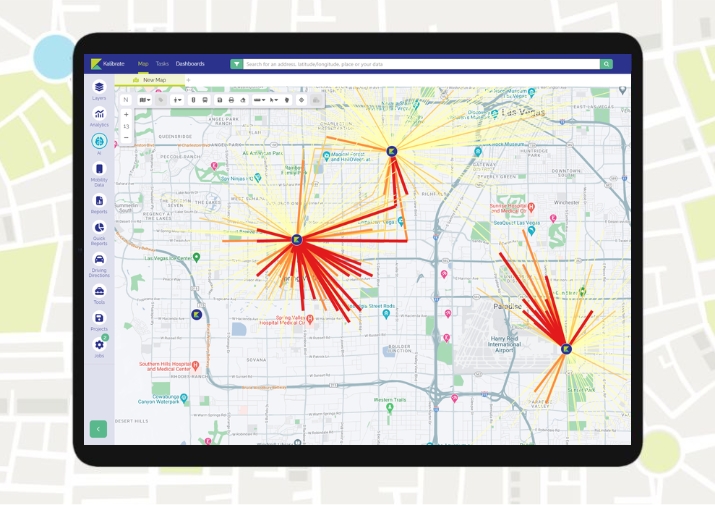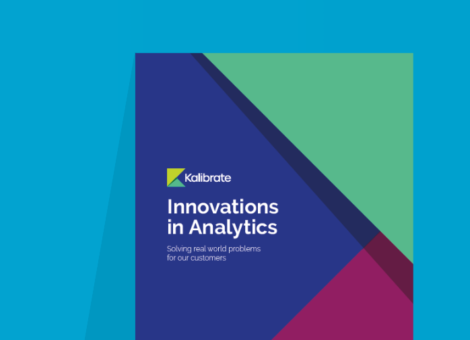Top five factors to consider when choosing a location analytics partner

Picking the right location intelligence partner is crucial when expanding or improving your real estate portfolio. But with so many operators out there, what should you look for?
For many years, we have assisted famous brands in understanding their customers and markets to surpass their competitors. We work with everyone from small chains opening units at speed to international chains optimizing portfolios across continents. And we’ve learnt a few things along the way.
Here are our top five things you should be looking out for when choosing a partner to support your brand.
Data capabilities
Data is the starting point for insight-driven decisions, but the volume of internal and third-party data, and the demands on handling it, can be intimidating. The most successful operators see better, cleaner data as vital business intelligence that spans applications way beyond real estate teams.
Whether you’re exploring a location analytics solution via a consultancy engagement or software, your partner should be able to support you in collating and sorting data. They should also be able to recommend third-party data vendors that will add the most value to the types of business question you’re looking to answer.
Where your internal data is limited, a good partner will recommend data sources such as foot traffic or mobility data and demographics to fill in the gaps.
Does the provider offer any support with ‘smoothing’ out data? Your internal data may need normalizing for integration with other data sets or a platform.
In a software context, look for the ability to integrate with various data sources – including databases, APIs, and other data formats. Each of these sources could hold valuable insight when it comes to making more informed decisions – and the ability centralize them quickly, within a platform, requires high levels of data integration capabilities.
Platform functionality
There are plenty of location intelligence software platforms for you to choose from. Beyond the data integration capabilities detailed above, here are a few crucial features you should look out for.
Interface – Does the platform easily allow you to visualize your data? How quick is the interface? Is it easy to navigate? Bear in mind, your team will be using this platform every day. If the user experience is clunky or slow, that impact will be multiplied over actions, days, months…
Collaboration – Depending on the size of your team and the business questions you’re trying to answer, it’s likely you’ll have multiple users accessing the tool. Ask questions of the vendor – can we share projects between users? What security features enable teams to see information relevant only to their departments? How about field-based teams? Can field users contribute while outside the office – how easy is that?
Scalability – Can the platform scale as your team and its challenges shift? How easy is it to add functionality? Are code rewrites needed, or is the platform built to scale seamlessly?
Location analytics support
Competent analysts leverage advanced analytical techniques, such as machine learning and predictive analytics, to provide deeper insights. This helps track changing customer behavior, forecast demand, and uncover market trends that might not be evident with basic analysis – all of which helps better decisions from customer acquisition to store location selection.
A strong location analytics team can tailor solutions to meet specific business needs. They can develop custom models and reports that align with your unique requirements, ensuring that the insights are relevant and actionable to the problems you’re trying to solve.
Forward-thinking analytics teams stay updated with the latest trends and technological advancements. This ensures that your location strategies remain innovative and future-ready, keeping your business at the forefront of industry developments.
Industry expertise
Different industries have unique market dynamics, including customer behaviors, regulatory environments, and competitive landscapes. A partner with industry expertise navigates these nuances effectively, ensuring that insight aligns with the real-world challenges and opportunities you face in your concept.
Industry experienced partners can also provide relevant benchmarks and best practices that are specific to your sector. This allows you to compare your performance against industry standards and adopt proven strategies that have been successful for comparable businesses at their stage of maturity.
A partner with industry expertise is better equipped to interpret data in a way that makes sense for your business. They can distinguish if location analytics outputs are identifying significant trends or outliers, providing a clearer picture of what the data truly means for your objectives and wider strategy.
A track record
Trust is perhaps the most critical component unpinning all the above. Can a location analytics partner really do what they say they’ll do?
A partner with a history of successful projects demonstrates reliability and competence. This track record reassures you that they have the necessary experience and skills to handle your requirements effectively. Ask questions like – can you tell us about the length of your client relationships? Who have you worked with over a long period of time?
You could also ask for testimonials. Positive references from existing clients provide valuable insight into the partner’s working style, effectiveness, and ability to deliver results. If they’re delivering value for that concept – and you can see the concept is making smart location decisions – that could provide confidence.
A successful track record of delivery in location analytics should include experience with projects like yours. This familiarity means the partner understands the specific data challenges and strategic opportunities associated with your situation, leading to more tailored and effective solutions.
For more information about our approach:
Read more articles about:
Location intelligenceSubscribe and get the latest updates
You may unsubscribe from our mailing list at any time. To understand how and why we process your data, please see our Privacy & Cookies Policy
Watch the launch of Kalibrate Location Intelligence 2.0
Discover how Kalibrate Location Intelligence can remove the guesswork and provide confidence when assessing locations and growing your brand.

Related resources
Location intelligence
eBook: Innovations in Analytics
How can analytics inform decision-making in real-world scenarios? Read Kalibrate insights from some of the recent...

Location intelligence
What does an omnichannel real estate strategy look like?
Seeing brick-and-mortar and online as distinct sales channels is a recipe for missed opportunities.


